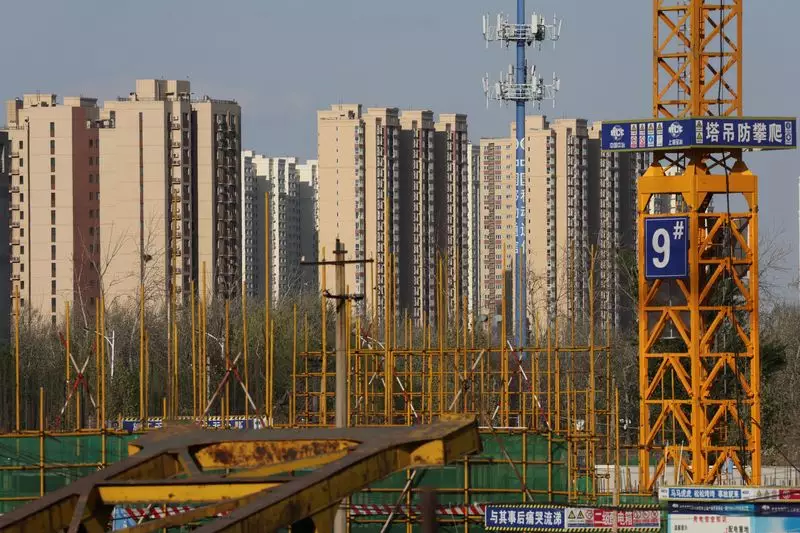China’s residential property market has been facing significant challenges over the past months, as indicated by the latest statistics detailing the most substantial declines in new home prices experienced in over nine years. The negative trends suggest deeper issues within the sector that even government interventions have failed to remedy effectively. This article aims to delve into the data surrounding these developments, exploring the implications for the country’s economy and the potential paths forward for recovery.
Recent data from the National Bureau of Statistics (NBS) highlights a stunning 5.3% year-on-year decline in new home prices, marking the steepest drop since May 2015. For the 14th consecutive month, monthly prices continued to decline, falling by 0.7%. These figures reflect not just a statistical anomaly but a trend indicative of escalating trouble within the property sector. Despite government efforts to stimulate growth, there seems to be no significant turnaround, raising concerns about the sustainability of the economy as a whole.
One of the most pressing issues within the property sector is the precarious situation faced by heavily indebted developers. Many companies within this landscape are grappling with financial instability—some unable to complete projects—contributing to a growing inventory of unfinished properties. This situation has led to a pronounced decrease in buyer confidence as potential homeowners weigh the risks associated with these investments. With the prospects of recovering buyer interest looking dim, it is evident that a severe recalibration is needed to restore trust in the market.
In response to these alarming trends, Chinese policymakers have begun implementing measures aimed at revitalizing the property market. Initiatives like lowering mortgage rates and easing home-buying costs have been introduced to encourage spending. While these efforts have seen some success in major urban centers—where demand for housing remains relatively strong—smaller cities continue to struggle. High levels of unsold inventory in these areas underline the difficulties authorities face in balancing buyer demand with available housing supply.
Moreover, research from Nomura underscores a growing expectation of government intervention as the situation worsens. The firm speculates that Beijing may step in as the “builder of last resort,” potentially providing direct funding to projects that have already been pre-sold but remain incomplete. This raises an intriguing question about the government’s willingness to continue pouring resources into a faltering sector.
Long Term Projections and Economic Implications
The long-term projections for China’s housing market appear bleak. A recent poll anticipates an 8.5% decline in property prices in 2024, followed by an additional 3.9% dip in 2025, as the sector continues to struggle with stabilization efforts. The implications of such a downturn extend beyond the realm of real estate. They pose a substantial risk to the broader economy, threatening to undermine the government’s goal of achieving a 5% growth rate for the year. Without significant breakthroughs in restoring buyer confidence and financial stability, this target may remain elusive.
Conclusion: A Path Forward
The challenges facing China’s property market are complex and multifaceted. With home prices experiencing unprecedented declines, investors and policymakers alike remain on high alert. It is increasingly clear that simply implementing short-term measures will not suffice. Policymakers must adopt a more robust and integrated approach to incentivize sustainable growth in the housing sector. Coordination between various levels of government and enhanced strategies targeting both buyer confidence and financial stability will be essential in laying the groundwork for a future recovery. Ultimately, finding a resolution to these longstanding issues will be critical to securing not just the housing market, but the broader economic health of China in the coming years.

